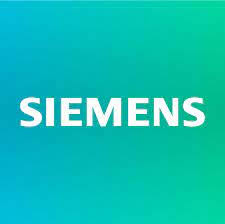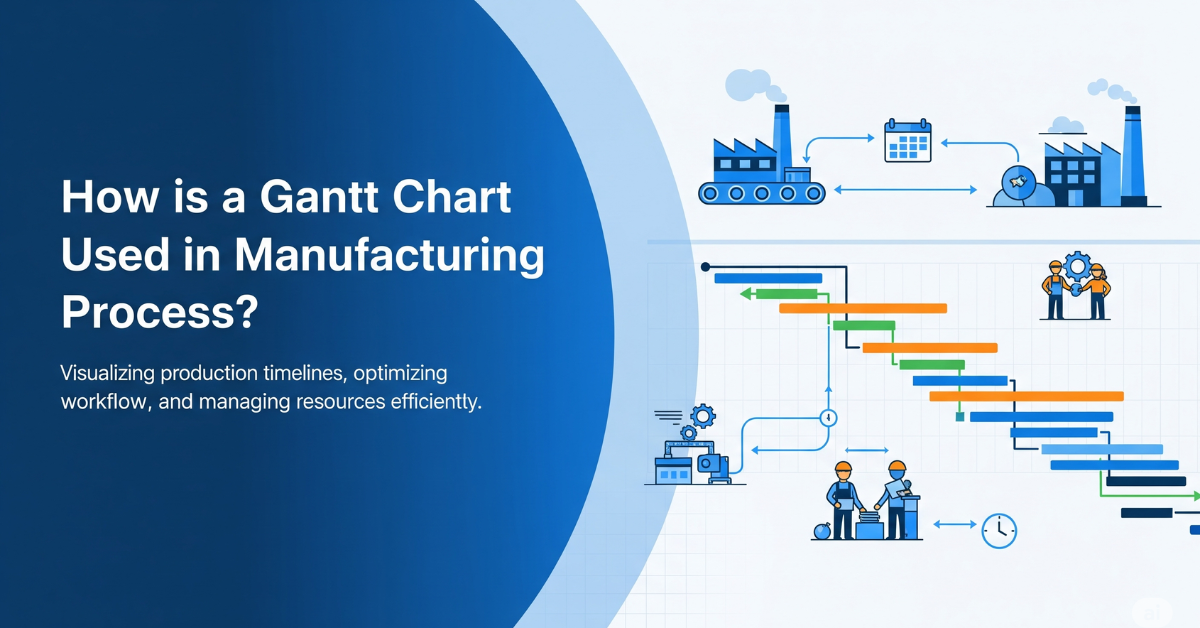Manufacturing Operations Management
MOM software systems integrate various manufacturing processes and business processes, from production planning and execution to quality control and logistics.
By leveraging real-time data and advanced analytics, MOM enhances operational efficiency, reduces costs, and improves product quality.
Manufacturing Operations Management Challenges
Managing manufacturing operations involves several challenges, such as integrating advanced technologies and data analytics, adapting to market demands and regulatory changes, and managing data from connected devices. This includes the collection and analysis of critical data from connected devices to ensure regulatory compliance.
Ensuring seamless coordination between departments, handling complex supply chains, and maintaining high-quality standards add further complexity, especially when monitoring the factory floor in real-time. Compliance with global regulations and addressing human variability are additional hurdles.
/MOM/What%20is%20MOM.jpg?width=600&height=400&name=What%20is%20MOM.jpg)
Capabilities of MOM Software in Manufacturing
Manufacturing operations management software provides a comprehensive framework for managing all aspects of manufacturing operations. It integrates and optimizes production planning, scheduling, quality management, and maintenance activities, including batch production, to enhance delivery, cost-efficiency, and resource optimization.
MOM software helps manufacturers improve productivity, reduce costs, and achieve consistent product quality across all production operations by managing complex supply chains, maintaining compliance with regulatory standards, and enhancing operational efficiency.
/MOM/What%20does%20MOM%20do.jpg?width=850&height=574&name=What%20does%20MOM%20do.jpg)
Features
Shop Floor Monitoring and Control
Manufacturing operations management (MOM) incorporates data integration for shop floor data collection without requiring manual inputs. Providing data visibility from machines and employees to aid in decision-making in production processes.
Performance Analytics and Reporting
Predictive analytics aggregates data across production, quality, and inventory systems to provide actionable insights into manufacturing performance. This helps identify areas for improvement and support strategic decision-making.
Inventory and Materials Management
Tracks raw materials, components, and finished products to enhance supply chain visibility and manage inventory levels effectively. It ensures timely procurement, minimizes waste, and prevents production delays due to material shortages.
Benefits
Quality Control
Monitor production processes in real-time with defect tracking to ensure that customers’ products meet quality standards, minimizing the risk of defects.
Productivity
Identify areas for improvement and optimize processes based on real-time data and analytics for effective process optimization.
Visibility
Improve your real-time visibility of the production process, inventory levels, and supply chain performance.
Operational Efficiency
Optimize production processes, improve workflow automation, and reduce cycle time.
Cost Reduction
Reduce costs associated with labor, materials, and production downtime through effective cost management.
Agility
Flexible manufacturing allows you to quickly adapt to market demands and trends with MOM systems.
Decision-Making
Make better decisions and increase your operational transparency because of real-time data.
Customer Satisfaction
Increase customer satisfaction, customer loyalty, and repeat business by incorporating customer feedback, better quality control, and reduced lead times.
Employee Satisfaction
Streamlined and optimized manufacturing processes enhance employee engagement and make employees less frustrated.
Siemens Opcenter
Snic Solutions is recognized as one of the elite organizations partnered with Siemens as a value-added reseller of Opcenter.
/About%20Page/Blake%20Digital%20Transformation%20Solutions.png?width=500&height=500&name=Blake%20Digital%20Transformation%20Solutions.png)

Manufacturing Software Integration
Manufacturing operations management (MOM) systems are key in the smart manufacturing ecosystem by integrating with systems like ERP, MES, APS, and QMS.
What happens when you integrate?
Integrating manufacturing operation management software enhances manufacturing efficiency and coordination, providing a unified platform for managing end-to-end operations. This ensures smooth data flow between functions, enabling real-time adjustments and maintaining consistency across planning, execution, quality control, and logistics.
/MOM/Integration%20with%20MOM%20(1).jpg?width=850&height=574&name=Integration%20with%20MOM%20(1).jpg)
Manufacturing Execution System vs Manufacturing Operations Management Software
MES software focuses on real-time execution and monitoring of manufacturing and production processes. Manufacturing management software provides a broader range of functionalities, encompassing MES alongside advanced planning, scheduling, quality management, and logistics.
From Our Blog
Stay up to date with what is new in our industry, learn more about the upcoming products and events.

How is a Gantt Chart Used in Manufacturing Process?
In manufacturing, Gantt charts are used to simplify production by visualising task…
.png)
Top Advantages of Laboratory Automation Systems
Are you curious about how laboratory automation can benefit your lab? Laboratory a…
.png)
What Is A Bidirectional LIMS?
LIMS bidirectional communication, or what is LIMS bidirectional, refers to the two…
Frequently Asked Questions
Have Question? We are here to help
How can manufacturing operations management software drive best practices and lean Six Sigma initiatives?
MOM software enhances efficiency by providing real-time alerts, workflow tracking, and centralized documentation. It reduces waste, standardizes processes, and enables continuous improvement. By integrating data-driven insights, it supports Lean Six Sigma principles, improving quality and operational consistency across manufacturing.
How does the software help in improving overall equipment effectiveness (OEE), total effective equipment performance (TEEP), and overall labor effectiveness (OLE)?
MOM software can collect data, identifie inefficiencies, and optimize workflows. It reduces downtime, enhances equipment utilization, and improves labor efficiency. Using Six Big Losses analysis, it enables proactive maintenance and better scheduling, maximizing production performance.
How can factory performance analysis and loss management improve manufacturing operations?
It identifies inefficiencies, tracks key metrics, and supports root cause analysis. MOM software provides actionable insights, enabling predictive maintenance, waste reduction, and optimized resource utilization. These improvements increase throughput and reduce costs.
What is shop floor data collection and tracking (SFDC), and how does it benefit manufacturers?
Shop floor data collection (SFDC) captures real-time production data, enhancing visibility, compliance, and decision-making. It reduces errors, improves traceability, and optimizes workflows, leading to higher productivity and better process control.
What is the significance of lean manufacturing and continuous improvement in manufacturing operations management?
They enhance efficiency, reduce waste, and improve quality. MOM software standardizes workflows, provides real-time monitoring, and enables iterative refinements, making production more cost-effective and agile.
What insights can be gained from a 360-degree view of production processes?
It provides full visibility into production, equipment, and workforce performance. MOM software aggregates data, optimizing scheduling, reducing downtime, and enhancing quality control.
What are the benefits of using a single platform for manufacturing and ERP integration?
It ensures seamless data flow, reduces errors, and improves coordination. MOM software enhances resource planning, inventory control, and decision-making, driving efficiency and cost savings.
How does advanced planning and scheduling (APS) improve manufacturing efficiency?
Advanced planning and scheduling (APS) software is a key component of MOM that helps balance demand and capacity.
How does digitization of the factory support manufacturing operations?
Digitization enables real-time monitoring, automation, and AI-driven analytics. MOM software connects enterprise systems with smart machines, improving production speed, accuracy, and efficiency.
What is Industry 4.0 and how does it influence manufacturing operations management?
Industry 4.0 integrates AI, IoT, and automation, enabling smart factories. MOM software facilitates autonomous production, data-driven decisions, and enhanced traceability.
What integration services are necessary for digitizing a factory?
Seamless IT/OT connectivity, data synchronization, cloud integration, and API-based accelerators ensure smooth factory digitization. These services enable interoperability between automation, ERP, and MES systems for streamlined operations.
How does the concept of a Smart Factory relate to manufacturing operations management?
A Smart Factory integrates automation, IoT, AI, and analytics to optimize production, aligning closely with Manufacturing Operations Management (MOM). MOM software enables real-time monitoring, predictive maintenance, and process automation, ensuring efficient resource allocation and minimizing downtime. By leveraging digital twins and AI-driven insights, MOM transforms traditional factories into connected, adaptive, and self-optimizing environments. This enhances quality, reduces waste, and increases agility, supporting Industry 4.0 initiatives.
What is mom in software?
Manufacturing operations management (MOM) provides a solution for optimizing the efficiency of the end-to-end manufacturing process. Functionalities include manufacture execution, quality management, product plans, schedules and manufacturer data analysis. MOM can enable manufacturers to custom-build their smart factories based on unique requirements.
What is the current and projected size of the Global Manufacturing Operations Management (MOM) Software Market?
The Global Manufacturing Operations Management Software Market is expected to reach $14.6 billion by 2025.
What is the difference between PLM and MOM?
Product Lifecycle Management (PLM) and Manufacturing Operations Management (MOM) are two distinct but complementary systems in manufacturing. PLM focuses on managing the entire lifecycle of a product from inception, design, and development through to service and disposal. It provides a framework for product data management, ensuring that all stakeholders have access to the latest product information. On the other hand, MOM is a real-time software layer that links with PLM to streamline manufacturing processes. MOM focuses on optimizing production operations, quality control, and maintenance activities, ensuring efficient execution of manufacturing plans derived from PLM data.
What is operations management software?
Operations management software is a comprehensive technology solution used across various departments and organizations to improve productivity, efficiency, and coordination in a wide range of functions. This software aids in streamlining business processes, managing resources, and facilitating decision-making. It provides tools for scheduling, workflow management, and performance monitoring, enabling organizations to align their operations with strategic goals. By integrating data from different sources, operations management software enhances visibility and control over processes, leading to improved operational outcomes and customer satisfaction.
What is a manufacturing system in operations management?
A manufacturing system in operations management encompasses the entire set of processes, technologies, and actions involved in producing and manufacturing a particular product or service. It includes the design, planning, execution, and control of manufacturing activities. These systems are designed to optimize production efficiency, quality, and flexibility, ensuring that products meet market demands and regulatory standards. While many businesses develop their own unique products over time, the manufacturing systems they implement consist of established processes that remain integral to their operations. These systems support continuous improvement, innovation, and adaptation in response to changing market conditions and technological advancements.
Partner With Us To Reduce Your Technical Debt
Snic Solutions is recognized as one of the elite organizations partnered with Siemens as a value-added reseller of Opcenter.
/About%20Page/Blake%20Digital%20Transformation%20Solutions.png?width=500&height=500&name=Blake%20Digital%20Transformation%20Solutions.png)
